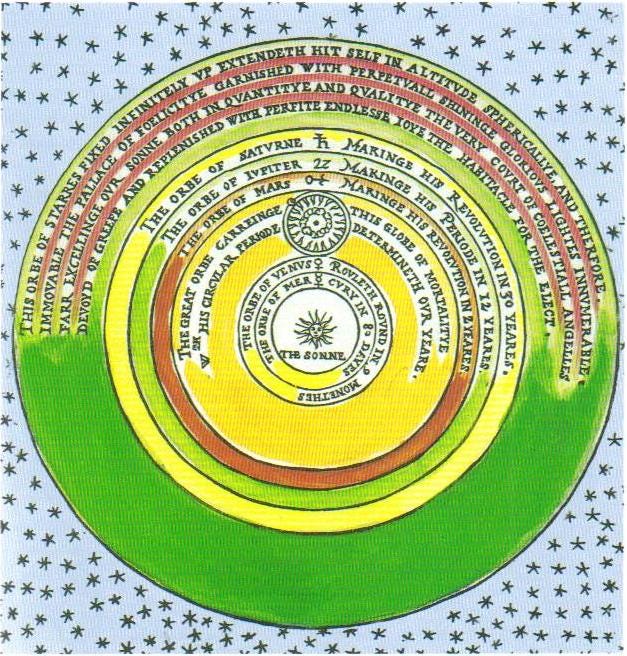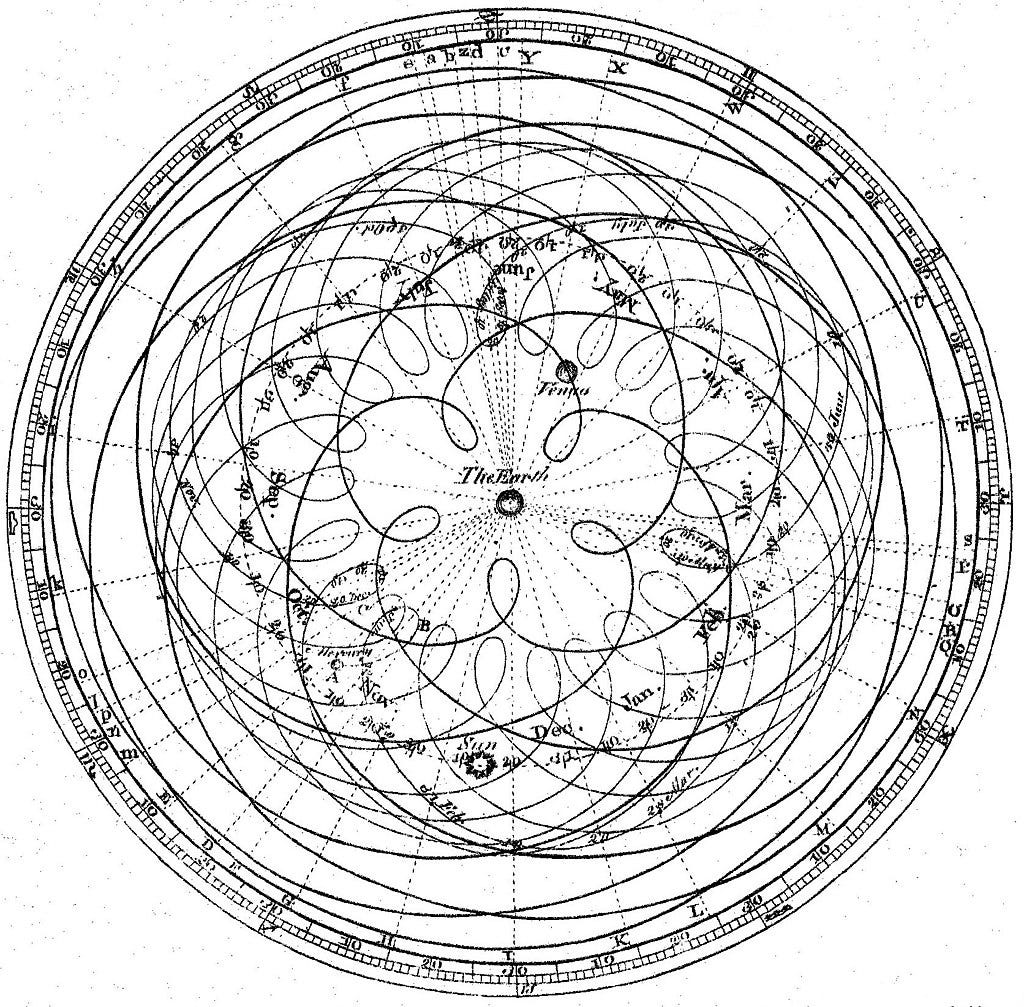In the seventeenth century, there was an idea so dangerous, so revolutionary, that you could be excommunicated or even killed by some religious people for holding it.
What was this heretical idea, you ask? Just the fact that the earth revolves around the sun! Heliocentrism, otherwise known as the Copernican system, caused such a stir amongst the avidly religious that in 1633 Galileo was convicted on suspicion of heresy for holding a Copernican worldview!
This may seem like a trivial fact to us today, but we must remember that an entire civilization once ardently believed that they were the centre of the universe, and ardently opposed any who dared to disagree. How did the world convince itself of this absurdity? Surely, the movement of the planets and the other stars in the sky should have provided enough data to prove they were wrong!
The answer is epicycles. The ancients and medievals had the data. They knew the planets didn't behave like they should if they were in a geocentric universe. They just fudged the math! Whenever they were presented with another piece of data that the planets in the night sky weren't behaving as expected, they just added another epicycle. The data never altered their world view.
In this week's parashah, we meet the B'nai Yisrael doing much the same thing. Already at the end of Sefer Bereshit, we see that things are not so grand for the Jews in Egypt. They live by Pharaoh's grace, and even the vaunted Joseph isn't free to come and go as he pleases - he has to ask Pharaoh for permission to bury his father! The Jews were living in a gilded cage.
But that's just the start.
At the beginning of this week's parashah, we see the Egyptians begin to turn the screws on the Jews. The Egyptians were afraid1 that the Jews were going to become so numerous and prosperous that they would eventually usurp the indigenous Egyptians, so they tried to make their lives miserable. They imposed ridiculous taxes - high enough to finance the refurbishment of two cities. Despite this, the Jews didn't leave. Then they began to work them - still, the Jews declined to simply go home.
The Jews were calculating epicycles, taking their life and their point of view for granted, doing all they could to keep on as they were!
Where do we calculate epicycles in our own lives? Where do we ignore what our life is telling us and continue down the wrong path?
Inertia is powerful. It's so powerful that before we know it, it can ruin our lives. Yes, it's easy to keep things the way they are; it's comfortable and familiar. But is it our best life? Is it even anywhere close?
Hashem communicates with us through His world. Our lives communicate with us. Are we ready to listen to what they have to say? Are we ready to stop calculating epicycles and start living in the real world?
Rashi Shemot 1:10



